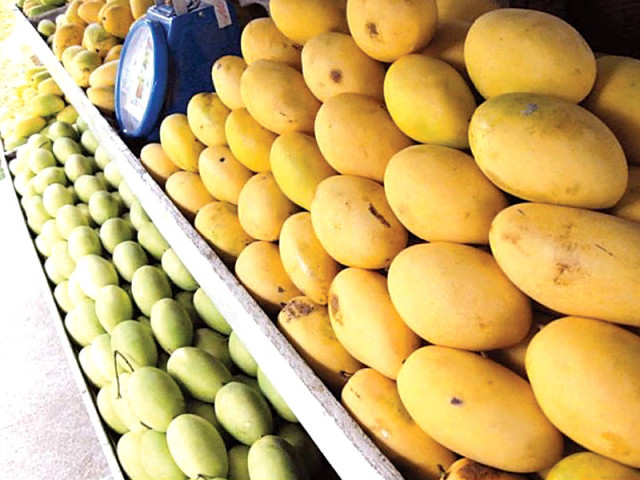Enforcing standards: Mango exporters see EU ban on India as a lesson
Pakistan’s fruit, vegetable association keen to avoid sanctions.

According to the EU, a high number of such consignments were intercepted at arrival in the EU with quarantine pests. PHOTO: FILE
The European Union’s recent ban on imports of Indian mangoes and a few vegetables due to concerns over the presence of fruit flies has given leading fruit and vegetable exporters in Pakistan a chance to collaborate and expedite enforcing higher standards of agriculture practices.
“We have taken the recent EU’s ban on Indian mangoes and some vegetables very seriously as it is an opportunity for us to look into how we have to cope with similar challenges,” spokesperson for All Pakistan Fruit and Vegetable Exporters, Importers and Merchants Association Waheed Ahmed told The Express Tribune.
Association members gathered here on Saturday to review the progress made against fruit flies and other diseases that are hampering the exports of fruits and vegetables.
“We will ask the government to make it compulsory for the growers to hang fruit fly catchers in their farms. This will help reduce the threat of fruit flies,” said Ahmed.
“The association is also looking forward to the purchase of X-ray machines so that exporters can make sure the country can only export products that are free from fruit flies and other detectable diseases,” he added.
On Wednesday, the EU’s Standing Committee on Plant Health decided to impose a ban on Indian mangoes and some vegetables from May due to concerns over the presence of pests and insects in Indian consignments.
India and Pakistan are among the leading mango exporters in the world. The two countries have similar atmosphere and challenges that hamper their exports to the world’s leading markets like the EU.
According to the association, Pakistan is the fourth largest mango exporter in the world. The country annually exports 19,000 tons of mangoes to Europe. The EU said that the decision had to be taken due to a high number of such consignments being intercepted at arrival in the EU with quarantine pests, mainly insects, like non-European fruit flies, Hindustan Times reported.
The EU said that though the prohibited commodities represent less than 5 % of the total fresh fruits and vegetables imported into the EU from India, the potential introduction of new pests could pose a threat to EU’s agriculture and production.
Published in The Express Tribune, March 30th, 2014.
Like Business on Facebook, follow @TribuneBiz on Twitter to stay informed and join in the conversation.


















COMMENTS
Comments are moderated and generally will be posted if they are on-topic and not abusive.
For more information, please see our Comments FAQ